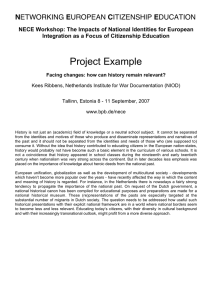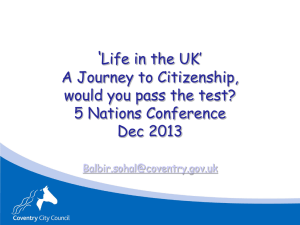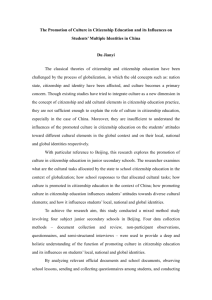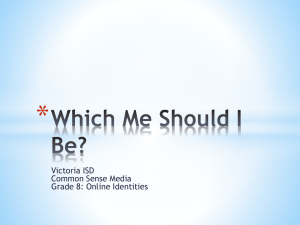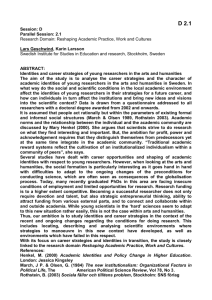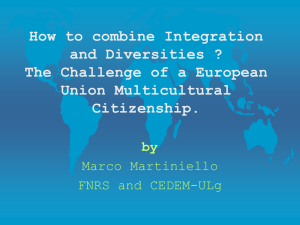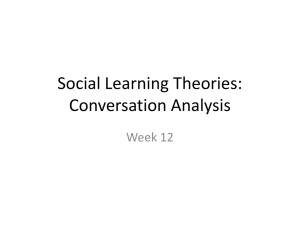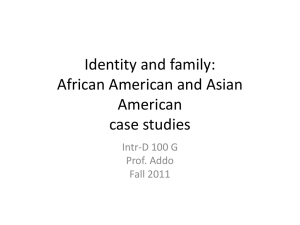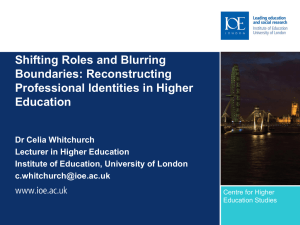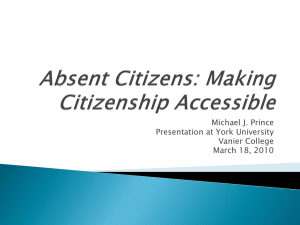Citizenship & Identities: political identity
advertisement
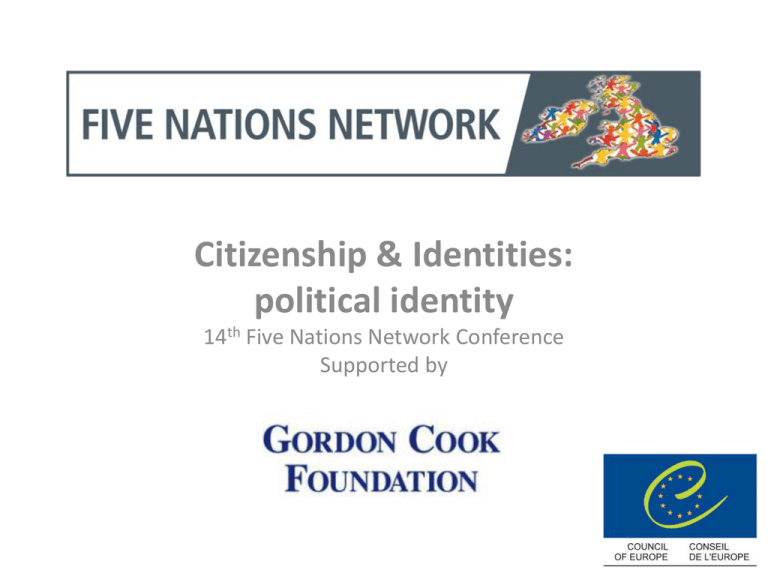
Citizenship & Identities: political identity 14th Five Nations Network Conference Supported by Liz Moorse & Deepa Shah Association for Citizenship Teaching (ACT) Welcome and orientation Twitter conference hashtag: #5NN Conference aims • bring together from across the five nations policy makers, practitioners and other stakeholders with an interest in citizenship and values education • discuss and debate citizenship and identities and explore questions about political identity in depth • encourage new thinking and learning about citizenship and identities and promote dialogue across country partnerships • explore the use of different pedagogies including digital technologies as effective teaching tools for teaching citizenship and identities • reflect on the Five Nations Network and its future development Citizenship and Identities: Political Identity • How can we define identities and political identity? • Role of citizenship education • Some challenges for citizenship teaching How can we define identities and political identity? ‘A New Politics of Identity’ (2008) Lord Bhikhu Parekh Defined identities as: • Personal – our unique and distinct characteristics • Social – roles & members of groups (father, sister; ethnic, religious, national etc) • Human – universal; membership of the human species in a globalized world. Social attitudes survey 2013: political engagement Political Identity? Three levels Passive identities in the form of lived relationships (class, gender, ethnicity), but not acted on Active – conscious identities that come to the fore when threatened eg racism Politicized – a more constant base for actions and how individuals identify themselves Role of citizenship in developing political identity? • gives young people a sense that they have a stake in society and democracy • learning to be ‘political’, skills and experience of being actively involved in democracy • learning about eg the relationship between citizens and the state, how democracy works = a need to explore, understand, negotiate their identities Some challenges • Develop conceptual understanding of identities • Create space for critical reflection and deeper learning • Help young people understand they ‘belong’ to a political community and it is worth being involved in public and democratic life.
